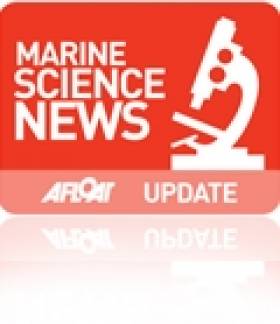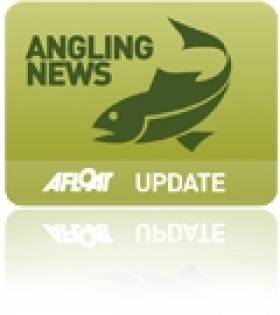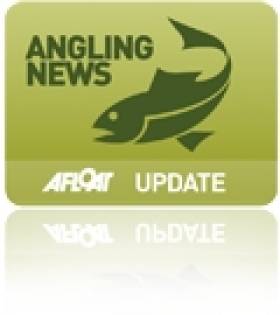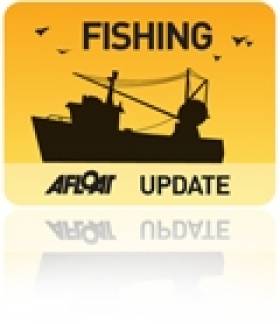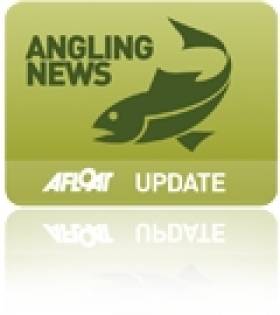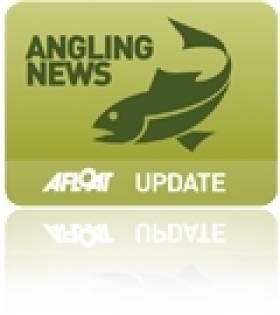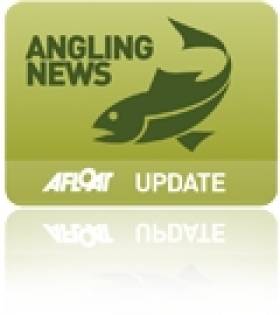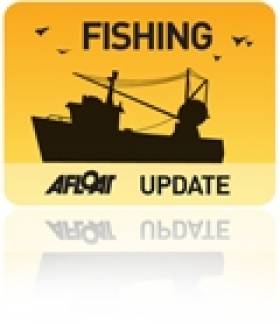Displaying items by tag: IFI
Ireland's Bass, Pike & Trout Policies Set For Review
#Angling - Inland Fisheries Ireland (IFI) has confirmed that it is in the process of reviewing the national policies for the management of bass, pike and trout.
The policies were launched by IFI in August 2014 and have a three-year review cycle.
IFI has commenced the process of examining all relevant and appropriate data to inform the review of these policies. This process was initiated in January 2016 and includes the examination of:
- The current stock management programme, including resource usage, fish transfer and health and safety.
- Marketing and socio-economic information to include actual and potential economic value.
- Scientific information to provide advice and to consider the scientific merits of the processes being currently undertaken.
An important element of each review will be a public consultation process which will be announced later in 2016. The consultations will ensure that anglers and other stakeholders have sufficient time to consider the existing policies and make submissions that will inform their review.
IFI chief executive Dr Ciaran Byrne said: “The public consultation element of the reviews presents an excellent opportunity for the 273,600-strong community of Irish anglers to engage with IFI and will ensure that the decision-making process becomes better informed, more rigorous and more accountable.
"IFI is committed to on-going engagement with anglers and other stakeholders through public meetings, the National Inland Fisheries Forum, public consultations and our complaints, comments and compliment procedures.”
During an anglers’ demonstration at IFI headquarters in Citywest on 24 March, IFI received a petition signed by over 22,000 people from around the world, including a total of 1,032 Irish signatures.
A group of approximately 80 anglers protested against the implementation of the current Pike Policy, agreed with the Irish Federation of Pike Angling Clubs and the National Association of Recreational Anglers in 2014.
Commenting on this, Dr Ciaran Byrne added: “While the petition represents a small proportion of Irish anglers, IFI recognises the unified views of those who signed it and we have made contact with the protest organisers with a view to engaging with this diverse group of anglers. IFI appreciates that public policy-making can be enhanced through the active involvement and contribution of all stakeholders with an interest in particular policy developments.
“In recent weeks, many of the protesters have made their views known to IFI through our comments and complaints channels but IFI wishes to assure all anglers that they will have the opportunity to make a representation in the public consultation process on the Pike, Trout and Bass Policy reviews later this year.
"Furthermore, IFI is running a number of surveys in conjunction with the ESRI to ensure that we capture the views of our domestic anglers as comprehensively as possible.”
Inland Fisheries Ireland Issues Statement On Response To Flooding Crisis
#Flooding - Inland Fisheries Ireland has issued a statement in response to the ongoing flooding crisis across the country following last month's winter storms.
Citing its history of working "in a positive and proactive manner" with the Government, State agencies, local authorities and others on the drainage and management of surface waters, IFI says it "will work with all relevant parties in expediting emergency flood relief works."
Following the recent meeting on the Shannon flooding crisis, IFI says it has offered emergency assistance on the ground, and suggested that the Local Authority (Works) Act 1949 be used as a legal instrument by which "exemptions for emergency in stream works could be progressed".
According to IFI chief executive Dr Ciaran Byrne: “Fisheries legislation provides for a closed season for undertaking instream works. However, in emergency circumstances, such as those currently being experienced, the 1949 Act provides for the relevant minister to issue an exemption subject to taking precautions and making provisions for the protection of fisheries.”
Cork County Council has already requested exemption from the closed season for instream works from now through to the end of 2017, though IFI says that falls beyond the scope of the Act, which only provides for emergency works.
Regardless, IFI maintains that it will continue to work with Cork County Council on the removal of excess gravel from the Bandon River downstream of Bandon's old road bridge "to allay fears that these gravels may cause flooding".
IFI's statement adds that it looks forward to the successful implementation of the upcoming OPW Bandon Main Drainage Scheme.
Scheduled to begin in June this year, the works will see the rock bed of the river lowered by up to 2m in the heart of the town, tapering downstream for up to 3.5km.
This scheme was agreed several years ago and was prepared by the OPW following consultation and consultative reports. It includes provision for a fisheries habitat rehabilitation programme once the design bed levels and flood conveyance capacity are achieved.
IFI & Queens Share Expertise In Fisheries Research
#MarineScience - Inland Fisheries Ireland (IFI) and Queens University Belfast (QUB) jointly sealed a Memorandum of Understanding (MOU) at QUB’s Medical Biological Centre on Wednesday 11 March, expressing their commitment to a continued rich and productive liaison in research and education.
Over a number of years, scientists from QUB and IFI have worked in collaboration to produce high-quality research covering an extraordinary range of projects, species and topics. Current areas of joint research include fish population genetics, aquatic invasive species and fish telemetry.
Speaking at the announcement, IFI’s head of research Dr Cathal Gallagher said: “IFI and QUB look forward to building on our existing relationship to produce the highest quality research outputs and publications to support the conservation and management on the inland fisheries resource.”
The organisations are also seeking to collaborate in encouraging and supporting the development of the next generation of fisheries scientists and technologists.
Dr Gallagher continued: “I am confident that the memorandum of understanding signed here today will act as an impetus to move forward with future research collaboration to support our shared goals. I see this collaboration as vital in supporting the development and education of the next generation of scientists into whose hands the future of this resource will be placed.
“I’m also extremely impressed by the expertise and quality of the joint research currently being undertaken and I look forward with anticipation to reviewing the outputs of these projects."
Prof Christine Maggs, head of the School of Biological Sciences at QUB also welcomed the announcement. “We are delighted that there is now formal recognition of the long and productive collaboration between QUB and IFI," she said.
“The school’s expertise in fish genetics, fish biology and aquatic ecology has been successfully applied to answering significant research questions for the IFI for more than a decade.”
#IFI - Inland Fisheries Ireland (IFI) has today launched a public consultation in preparation for the development of a new five-year corporate plan.
Interested parties are being invited to submit observations on what should be included in the plan which will run from 2015 to 2020.
IFI was established under the Inland Fisheries Act of 2010, and under Section 41 of the Act it is required to prepare, adopt and submit for approval to the Minister for Communications, Energy and Natural Resources a five-year rolling corporate plan.
IFI’s current corporate plan covers the period 2011 to 2015 and is available on the IFI website HERE.
The principal functions of IFI are set out under Section 7(1) of the Act and these are the protection, management, and conservation of the inland fisheries resource. The general functions of the agency are:
- To promote, support, facilitate, and advise the Minister on the conservation, protection, management, marketing, development and improvement of inland fisheries, including sea angling.
- Develop and advise the minister on policy and national strategies relating to inland fisheries including sea angling and,
- Ensure implementation and delivery of policy and strategies developed under subsection (b) as agreed with the minister.
Observations on what should be included in the new plan can be made to Emma Fortune, IFI Headquarters, 3044 Lake Drive, City West, Dublin 24 or by [email protected].
The deadline for receipt of observations is Friday 10 April 2015.
#inlandfisheries– National policies for the management of trout, pike and bass, will be launched on Friday 22nd August by Inland Fisheries Ireland (IFI), the state agency responsible for the protection, conservation, management and promotion of Ireland's inland fisheries and sea angling resources.
The three policy documents have been formulated, through a rigorous consultation process, by groups comprising: fisheries scientists; angling federations; and industry representatives.
Speaking ahead of Friday's launch, IFI chairman, Mr Brendan O'Mahony, said, "The new policies mark a cornerstone for fisheries management in Ireland. They will have a very positive impact on the conservation and management of bass, pike and trout as well as ensure the sustainability of stocks into the future."
#FishFarm - Bord Iascaigh Mhara (BIM) has responded to concerns from environmental groups that an ingredient in treatments for sea lice in salmon farms poses a threat to wild marine life.
As Galway Bay FM reports, campaigners Galway Bay Against Salmon Cages - one of the groups opposed to the planned Galway Bay fish farm - say that cypermethrin, an active ingredient in veterinary medicine used to treat sea lice, is toxic to aquatic organisms.
BIM aquaculture manager Donal Maguire attempted to play down fears over the use of the pesticide, saying it has been fully tested for toxicology in the marine environment.
However, another campaign group claims BIM's position is contrary to the manufacturer's own warnings on the use of the drug.
According to FishNews.eu, Friends of the Irish Environment (FIE) cited the Irish Medicines Board's product description for cypermethrin, which states that it is "dangerous to fish and other aquatic life" and demands that the chemical "should not be allowed to contaminate water".
FIE went on to describe cypermethrin as "a biocide which kills life, not a medicine that saves lives" and as "a highly active neurotoxin" with "known effects on fish and, most sensitive of all, crustaceans such as crabs and lobsters. Bathers and watersports [enthusiasts] may also be at risk."
Earlier this month, Inland Fisheries Ireland (IFI) expressed "serious concerns" over the findings of a study on wild salmon in Ireland that claimed fish farm schemes were less harmful to wild fish than pollution and possibly even beneficial to wild catchments.
IFI is among the significant opposition to BIM's proposed organic salmon farm off the Aran Islands, a 500-hectare project that would be the largest of its kind in Europe and create hundreds of jobs in the locality.
Request For Assistance In National Bass Programme
#Angling - Inland Fisheries Ireland (IFI) has put out a request for assistance in its new National Bass Programme.
IFI has established the National Bass Programme to collect data on bass in order to provide scientific advice to support management and conservation of Ireland’s bass resource.
Bass is Ireland’s only marine fish species which is managed for angling.
The programme is being developed to determine the status of bass stocks and also to improve understanding of their ecology and biology in Ireland for the long-term sustainability of the species.
All assistance with the National Bass Programme would be greatly appreciated. If you would be interested in sending bass scale samples, the IFI can provide you with a scale envelope pack.
Minister Marvels at Young Anglers in Fly Fishing Worlds
#Angling - Minister of State Fergus O'Dowd gave some words of encouragement ahead of the World Youth Fly Fishing Championships taking place this week till 26 July in venues across Louth, Monaghan, Meath, Tyrone and Antrim.
The event will help to showcase the wonderful angling amenities on the island of Ireland, And with competitors all in the 14-18 age bracket, it will also promote the wonderful sport of recreational angling to young people.
Minister Fergus O'Dowd, who attended the launch of the event, encouraged the youthful competitors and marvelled at their ability to "take challenges in their stride at such a young age and compete wholeheartedly and sportingly".
The minister also acknowledged the important economic and social impact angling has on rural communities, bringing much needed revenue and jobs.
Inland Fisheries Ireland (IFI) chief Dr Ciaran Byrne added that the national fisheries body is "delighted to be the main sponsor of this prestigious event.
"IFI, through its sponsorship scheme, aims to promote youth angling but also ensure best practice, and in that regard IFI is providing the biosecurity measures for this competition."
Along with IFI, the Loughs Agency, DCAL, Fáilte Ireland and local businesses are supporting the great work of the organising committee under the guidance of the Leinster and Ulster councils of the Trout Angling Federation of Ireland. The competition is a cross-border initiative run under the regulation of FIPS Mouche.
Angling Worth €0.75bn to Irish Economy Annually
#Angling - Minister of State for Natural Resources Fergus O’Dowd has warmly welcomed the findings of a new national economic study that reveals for the first time that angling and angling tourism in Ireland are generating a dividend in excess of €0.75 billion within the Irish economy every year.
The study, commissioned by Inland Fisheries Ireland (IFI), shows direct spending on angling in Ireland amounted to €555 million in 2012, with indirect spending worth an additional €200 million and totalling €755 million.
Recreational angling was also found to directly support 10,000 existing Irish jobs, many of which are located in the most peripheral and rural parts of the Irish countryside and along our coastline.
The study - titled a Socio-Economic Study of Recreational Angling in Ireland - found that 406,000 people were involved in recreational angling in Ireland last year, with over 150,000 of these travelling from Northern Ireland and overseas.
Over a quarter of a million Irish adults (252,000) held a fishing rod last year with sea angling along with salmon and brown trout angling seen as the most popular categories where domestic anglers are concerned.
The quality of the Irish angling product, the friendliness and hospitality of the Irish people and our outstanding scenery were cited amongst the principal attractions of Ireland as an international destination for recreational angling. Tourism angling spend is estimated at approximately €280 million on an annual basis.
Speaking at the launch of the study at the Royal College of Physicians on Kildare Street, Minister O'Dowd admitted that the findings had come as a surprise, as this was the first national survey which was able to put a value on angling to the economy and that up till now the economic significance of the sector had been greatly underestimated.
The minister said the study not only highlighted to him the major economic impact that angling makes to the Irish economy, but it also underlined the need to continue to protect and nurture this valuable resource, if it is to be allowed to develop and grow to achieve its full potential.
“The results contained in this report are significant,” he said. “Angling, as a recreational pursuit, is a major contributor to the fabric of Irish life in all parts of the country, particularly in rural and peripheral areas.
"From the industry perspective, the strategic development and marketing of our angling product is essential and has been given new impetus in light of what we now know about the visiting and spending patterns of anglers and what is important in drawing them here.
He added that it is "equally clear to me that maintaining a strong focus on the protection and conservation of this vital resource into the future is absolutely key if we are to properly sustain and grow these benefits to anglers, angling businesses and the Irish economy.”
The study, commissioned by IFI in early 2012 and undertaken by consultants Tourism Development International, was undertaken to help underpin effective strategic planning and decision making in respect of the angling product’s development and marketing.
IFI chief Dr Ciaran Byrne commented at the launch that the national fisheries agency “will now review the results of the survey in conjunction with our stakeholders. Clearly fish stocks and fish habitat must be conserved, protected and developed. Angling businesses must be given every opportunity to win business and secure and grow the jobs within the sector.
"IFI is committed to these goals and together with our stakeholders and the support of Government, state agencies and a new angling marketing and development plan we will achieve them.”
The study is available to download from the IFI website HERE.
#Fishing - The Irish Times reports that Inland Fisheries Ireland (IFI) has expressed "serious concerns" over the findings of a new study on wild salmon in Ireland.
The State agency for Ireland's fisheries argues that the study - which concluded not only that pollution has a greater impact on wild salmon numbers than fish farming, but also that salmon catchments in close proximity to aquaculture schemes were some of the best performing - is based on flawed methodology.
IFI is among the chorus of voices opposed to the planned organic salmon farm off the Aran Islands in Galway Bay - a 500-hectare project by Bord Iascaigh Mhara (BIM) that would be the largest of its kind in Europe if given the go-ahead.
Marine Minister Simon Coveney recently attempted to alleviate concerns over the controversial scheme, claiming there would be no damage to the environment or fish stocks.
However, the controversy doesn't end there, as last month celebrity chef and 'Slow Food' champion Darina Allen wrote to the minister over erroneous claims in BIM's environmental impact statement (EIS) for the project.
As reported by the Galway Independent, Allen contacted Minister Coveney to clarify that the Slow Food movement does not support fish farming projects, after references to the initiative in the EIS "seemed to create a lot of confusion".
Allen told the paper: “Many people contacted me under the perception that Slow Food endorsed the whole salmon farm thing and actually Slow Food has made no statement whatsoever on it.”
Later, Michèle Mesmain of Slow Food International confirmed that “salmon farming does not fit in any pillar of Slow Food”.
The Galway Independent has much more on the story HERE.



























